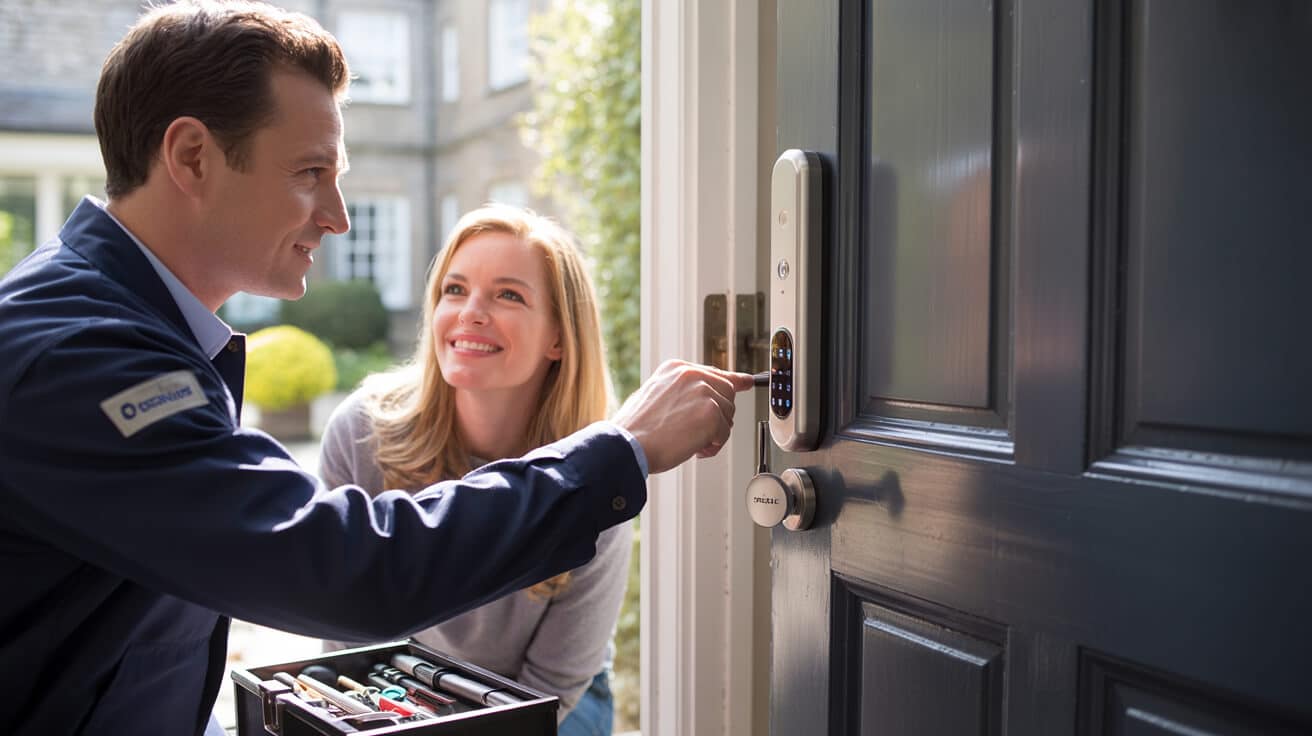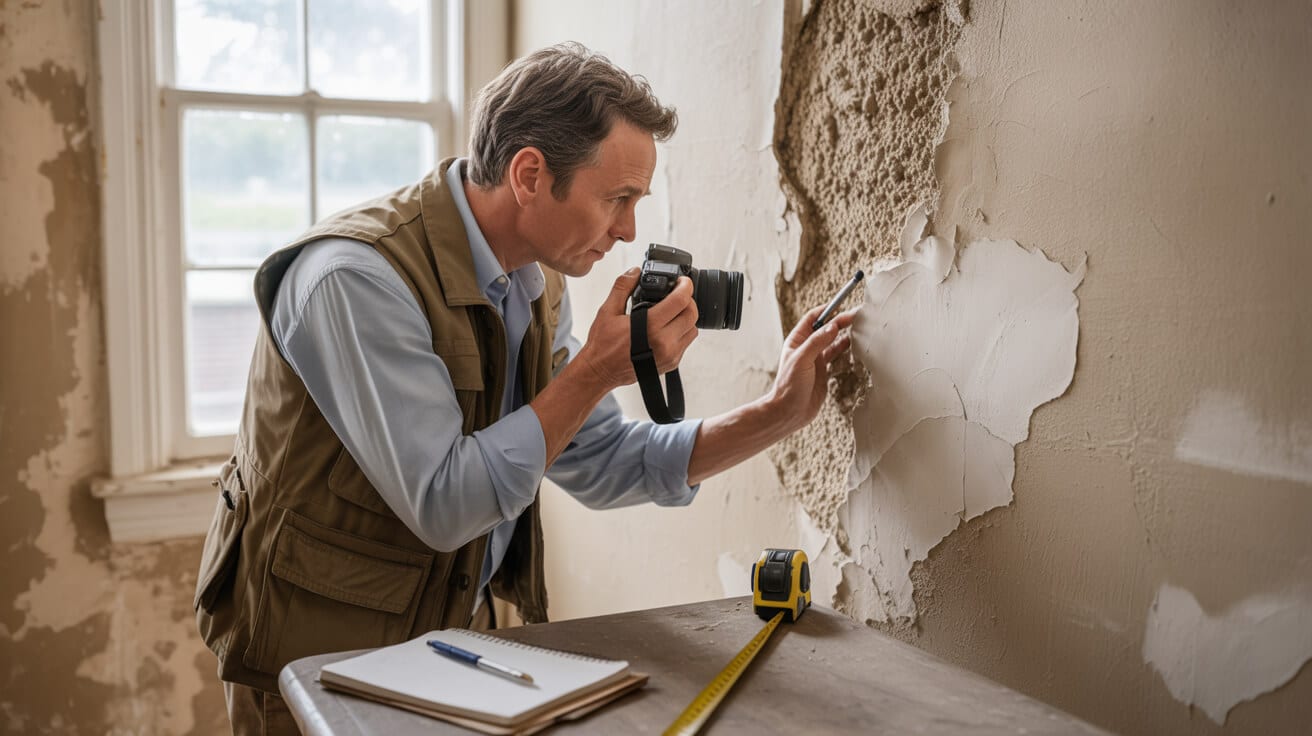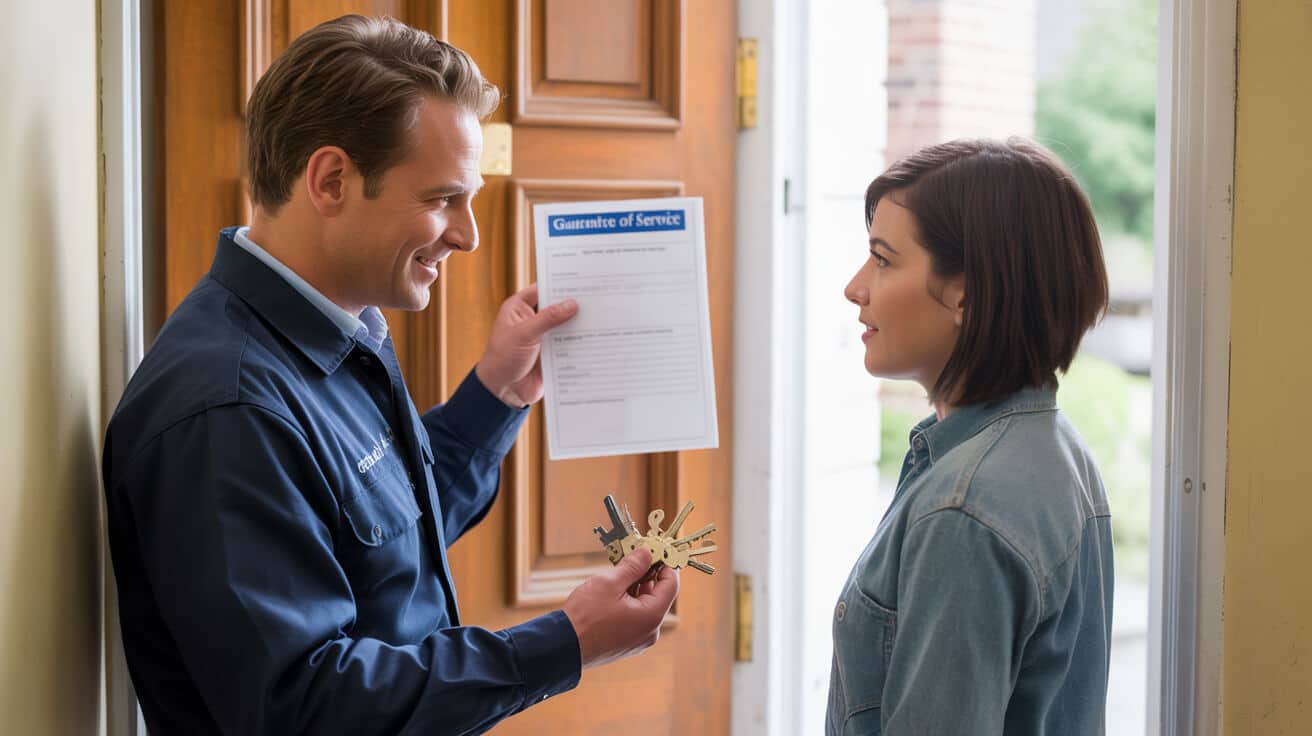 Home Maintenance For First Time Buyers Your Essential Onboarding Checklist
Home Maintenance For First Time Buyers Your Essential Onboarding Checklist

Are You Ready for the Real Work of Homeownership? Why Maintenance Isn’t Optional
Becoming a first-time homeowner isn’t just a proud milestone—it’s the moment everything behind the scenes becomes your responsibility. You don’t get the “landlord buffer” anymore. The safety of your family, the value of your investment, and your future daily stress levels now hinge on the choices you make in week one. Home maintenance isn’t some old-school advice for “fussy types”—it’s how you prevent one leaky joint from turning into thousands in repairs, or a dodgy lock from inviting the exact disaster you don’t want.
Little tasks skipped today quietly become the big problems you regret tomorrow.
The UK’s housing system does not go easy on new buyers who overlook the basics. Miss a gas safety check? That’s insurance trouble. Forget to update your council records? Be ready for wasted hours fixing bureaucracy—or fines that hit at the worst moment. The answer isn’t to know everything—it’s to be methodical. With a focused onboarding checklist and a zero-chill approach to the “boring” jobs, you bulletproof your home against the curveballs that catch most buyers napping. Skip the drama—this is about staying ahead.
What Steps Lock Down Your Home’s Security From Day One?

Here’s some raw truth: from the moment you get the keys, the buck stops with you. Security isn’t just about what you can see—it’s about plugging every gap a stranger or ex-tenant might slip through. Let’s get honest: If you don’t change the locks, you’re gambling. If you don’t test the alarm, you’re hoping. Neither is a winning mindset.
Why Your Locks Are the First Line You Can’t Ignore
Every key not replaced is an open invite to whoever had access before you, from handymen to previous owners. Upgrade to new, British Standard-approved locks. Don’t overthink it—book a DBS-checked locksmith and watch them instal anti-snap, insurance-rated cylinders. Keep spares locked down. You only trust the keys you own.
- List every single entry point: Not just the front door—hit the garage, the back gate, every shed.
- Get the job signed off with paperwork. That’s your proof for insurance if anything ever happens.
- Update your own records about who has which key, and don’t wing it with hiding spots or casual spares.
Four out of five key burglaries happen when new owners skip a total lock swap. *(Met Police 2024)*
Make Your Home Visibly Hard to Target
Thieves scan quickly for homes where no one seems in control. Fast fixes have a massive deterrent effect.
- Register and test your alarm—even “old-school, ugly” ones. Change the PIN.
- Plug in a couple of motion-sensing lights. No high-tech needed—just make it obvious you’re paying attention.
- Add smart video doorbells and fresh security signs to every likely entrance.
- Check all ground-floor window locks—if any are wobbly, fix them now.
Homes with active visual deterrents are five times less likely to suffer a break-in. *(Cambs Lock & Safe 2023)*
Once you know every lock and alarm is dialled in, you move on to the red-tape admin that sets you up for zero friction in week two. Skip any of this, and sooner or later you’ll pay double fixing what you could have handled in an afternoon.
How Do You Stop Bill Shock and Admin Chaos in Week One?

Utilities and council records might feel like background noise, but let one slip and suddenly your “fresh start” comes laced with debt, missed bins, or cut-off internet. The real win? Handle these tasks like a drill sergeant and watch every other piece of home life get a smooth runway.
Utilities: The Checklist That Saves You Hundreds
- Snap a photo of every metre (electric, gas, water) the second you get inside.
- Contact all suppliers and get everything into your own name with a written or email confirmation. No phone promises—get receipts or screen grabs.
- If you’re renting, do the same at move-in and move-out. That’s your ammo for any battle over deposits or “leaving it how you found it”.
Acting fast on utilities transfers is your only shield against bills from old tenants or mysterious usage. *(Unbiased 2023)*
Council Tax and Local Services: Zero Fines, No Delays
The council handles more than tax—they sort bins, special waste, and even driveway permits. Mess this up and you risk fines, missed services, or waste headaches that spiral.
- Register your move-in date and all occupants for council tax.
- Get the lowdown on waste, recycling, and bulk collection schedules.
- Apply for resident or guest parking permits right away if needed.
Most routine council errors come from owners not registering in the right window. Fixing it early saves hours of hold music later. *(Halifax 2022)*
Smash the admin on week one and your “chaos window” closes before trouble has a chance to set in.
What Habits Turn Panic Repairs Into Predictable Wins?

Think home safety is a once-a-year deep clean? Rookie mistake. The homes that cost buyers the least are set up with weekly, monthly, and annual checks that make big disasters impossible. Maintenance isn’t your job—it’s your edge.
Smoke, CO, and Fault Sensors: Don’t Guess—Test
- Every alarm needs testing the very day you move in. Use the button, listen for the beep, don’t just “assume they work.”
- Change batteries even if lights are green. If you see dust or yellowing, replace the unit.
- Sync up a monthly reminder on your phone. No exceptions.
- Book a plug-in or hardwired alarm test with a pro in the first month—don’t risk unknown odd wiring.
Fully tested alarms triple your family’s odds in a fire. *(UK Gov 2023)*
Hidden Risks: Blocked Vents, Slow Drains, and Damp
The fastest way to catch a repair bill is to ignore “small” things buzzing in the background. Build good habits and they’ll pay dividends.
- Clean out fan covers in kitchens and baths, then run every water source—taps, showers, toilets—and track any slowdown.
- If you smell or see slow drains, flush with baking soda and vinegar or book a pro for backup.
- Keep simple photo logs of checks—you’ll thank yourself come insurance or inspection day.
Owners who tackle blocked drains early halve their risk of major water damage. *(MyBuilder 2024)*
Routines aren’t just chores—they’re what keep panic off the menu.
How Do You Stop Damp and Hidden Damage Before It Spreads?

Few things tank a property’s value (and your mood) faster than mystery moisture or “that smell.” These issues rarely stay hidden. The secret is acting at the first sign, not after mould has already spread.
Reading the Early Signs: Use Your Senses
Forget fancy gizmos—your eyes and nose spot 90% of problems.
- Get your nose low—musty smells signal fresh leaks.
- Slide furniture and check under window ledges for soft, bubbling, or peeling patches.
- In lofts, look for new stains—especially after rain.
- Don’t be afraid to press on suspicious surfaces. Give way? That’s a hidden problem.
1 in 5 respiratory diseases link to untreated damp and mould. *(NHS 2023)*
When It’s Time to Bring in the Cavalry
Not every problem is DIY. If you see recurring wet patches, suspect structural leaks, or can’t source the smell, you need a professional.
- Look for surveyors or damp specialists with documented track records.
- Always demand a non-invasive assessment first. Don’t let anyone rip walls unless they prove it’s needed.
- Leave over-the-counter sprays for surface dirt—a real fix takes more.
A musty smell that lingers three days is your cue to get expert help—not hope the problem just dries up. *(Which? 2023)*
When in doubt, don’t delay—it costs less to get a pro in now than to wait and watch the damage multiply.
How Do You Catch Early Leaks and Save Yourself Thousands?

Wall cracks, water stains, or bubbling paint aren’t “character”—they’re warnings. Reading them right and acting fast often means the difference between a quick fix and a major renovation that wipes out your cash reserve.
Spot Trouble Before the Flood
- Use a torch under every sink, on window sills, bathtubs, and around any pipework.
- If you see yellowing, raised paint, or even the faintest sign of bubbling—stop and check for leaks.
- Trust patterns: A new water mark in winter, or a spot that’s been “painted over” badly, are always worth a second look.
A £30 fix becomes a £1,000 job if you let damp or leaks run six months. *(W R Surveying 2024)*
Who to Call—And When
If you see multiple spots, repeated puddles, or patchwork that keeps coming back, you’re well past the “wait and see” window.
- Only use accredited repair services—those who provide clear job scopes, digital certification, and photography, like All Services 4U.
- Keep timestamped records—photos, repair invoices, and warranty logs are money in the bank at resale time.
- Always demand proof of work after the repair—your insurance claim just got easier.
Claims with full photo evidence and callout logs pay faster, with fewer headaches. *(Property Reporter 2022)*
Nobody expects their home to be problem-free. The smart move is to react before trouble compounds.
What Legal and Safety Checks Are Non-Negotiable for Owners?

Meet gas and electrical safety head-on; it’s the law, and the consequences for skipping checks stack up quick—insurance voids, fines, or even personal risk. Owners without habits here are just hoping their luck holds out.
Gas and Boiler Safety: Don’t Take the Seller’s Word
- Get a Gas Safe engineer in as soon as possible, even if the paperwork “seems recent.” You don’t know what changed after the purchase.
- Log every annual check. Store in a place you can find on three hours’ notice—lender, insurer, or letting agent will ask.
- Never skip a single scheduled service. Your legal footing and your family’s safety depend on it.
Every documented check is extra leverage for faster claims and eventual resale. *(HSE 2023)*
If You Plan to Let: Think Ahead
- You need a CP12 (Landlord Gas Safety) certificate, updated with each tenancy.
- Fix every red flag in inspections—no delays, no patch jobs.
- Keep a compliance folder—hard copy and digital—so nothing vanishes when you need it.
Missed certificates are top of the list for delayed conveyancing (and stress). *(Legislation.gov.uk 2022)*
Gas, electrics, and fire records shouldn’t be “lost in a drawer”—they’re your shield when life, law, or lenders come asking.
Why Is Meticulous Record-Keeping Your Long-Term Secret Weapon?

Most buyers underestimate how vital paperwork becomes when things get weird—be it a rogue plumber bill, an insurance claim, or prepping for resale in a rush. Every scan, invoice, and warranty is a hidden asset.
Building a Bulletproof Maintenance Log
- Every job—service, minor repair, inspection—gets a photo, a date, a quick what/why note.
- Certificates, paperwork, and receipts belong in a digital folder (and a back-up). Yes, print a copy for the “old school” pile.
- File everything by type: safety (gas, electrics, fire), appliances, structure. Your future self will love this when you need a trace.
Organised paperwork lifts resale value and slices days off insurance claims. *(Propertymark 2023)*
Manuals and Certifications: Never Let Them Go Missing
Whether you’re making an insurance claim or selling, missing proof means money left on the table (or the buyer walking away).
- Always demand full certification from any professional service—All Services 4U does this as standard.
- Set reminders to obtain updated documents after every inspection or upgrade.
The number-one cause for slow home sales: missing certificates and gas safety paperwork. *(Gas Safe Register 2023)*
Treat every piece of documentation as gold—good records are the silent clout of smart owners.
Who Do You Trust When It’s Not a DIY Job?
Ask anyone burned by a nasty repair bill: The only thing costlier than hiring a pro is hiring the wrong one. When the problem’s serious—think gas, electrics, rising damp, or evidence for insurance—you need accredited help, full stop.
The Real Value of Reputable Multi-Trade Firms
Call in professionals—like All Services 4U—the minute a problem steps out of “easy fix” territory. The best providers come with:
- Trade accreditation and full public liability insurance (yes, always check).
- Digital certificates and clear records after every job.
- Status updates, from ETA to job log, so you’re never left “waiting all day”.
First-time buyers with reputable backup report fewer emergencies, less stress, and smoother claims. *(All Services 4U 2023)*
Red Flags: What to Avoid Every Time
- No proof of trade or ID at the door? Send them packing.
- No written quote or scope? Massive warning sign.
- Firms that “just patch over”—instead of reporting what they found—are setting you up for repeat headaches.
Your first years as a homeowner shouldn’t feel like a game of chance. Book support you can verify, and the rest is just maintenance on autopilot.
Own Your Advantage—Make Maintenance Your Superpower
First-time homeownership will test you. But—armed with clear steps, a “no-nonsense” logbook, and advisors you trust—you can make it look easy. Most buyers get caught out by the hidden stuff and then spend months scrambling. That doesn’t have to be your storey. Lock down your new home. Tune your habits. Build a folder of “boring” paperwork. And whenever it’s out of your depth, bring in the pros.
Luck is what happens when you’re methodical—so you never need to panic.
For every urgent repair, annual gas check, or question about what your home “should” look like on paper, All Services 4U is a call away. Move in like you mean it—safe, sure, and with every detail locked down. Welcome to homeownership—the best chapter yet, when you play it smart.
Frequently Asked Questions
Why should new property owners treat lock and code changes as an immediate priority?
Overlooking lock changes when stepping into a new property leaves your household exposed to risks you simply can’t see. Whether keys have been lost, duplicated by trades, or forgotten by previous owners, every unreset lock is an open door for trouble. The Metropolitan Police highlight that more than four out of five burglaries post-purchase are linked to unchanged locks or codes, confirming this isn’t just theoretical—your security is only as tight as your weakest handover. Swiftly replacing every cylinder and access code instantly severs any unseen ties to the past and shifts all liability, insurance, and peace of mind into your own hands.
True ownership begins when you control every point of entry—no exceptions, no blind spots.
What concrete steps deliver a full security reset?
- Replace every lock: Front, side, back, patio, and garage—count every mechanism, including outhouses.
- Reset digital access: Re-programme PINs and key fobs, especially on smart locks, intercoms, and garage doors.
- Collect proof: Snap photos, label invoices by date; insurers may need this if a future claim arises.
- Instal visible deterrents: Fit motion-sensor lights and upgraded alarm signage—these reduce opportunistic targeting by over half, according to Secured by Design.
Why is move-in timing so crucial for insurance?
Most insurers mandate that all locks and codes are changed within the first days of legal completion. Waiting until “after you’ve settled” can void your theft coverage or result in rejected claims—because previous holders still have potential access. Prompt action carries weight well beyond peace of mind; it’s your compliance line for insurance, letting, and even future premium reductions. Take control on day one, and you’ll never second-guess who holds your keys in the months or years ahead.
What vital admin steps prevent surprise costs and service gaps after you get the keys?
The handover rush often blindsides new owners to the small admin details that hit hardest: forgotten metre readings, late account switches, or missed council registrations. Failing to close out the previous occupant’s utility or council tax can land you with their bill—sometimes weeks’ worth of back-charges or disputed penalties. The latest report from Citizens Advice shows an average “oversight penalty” of £185 per new home tied to delayed account updates, not counting wasted hours in dispute resolution. Your best protection? Treat paperwork as day-one currency, not a box to check “once settled.”
Which documents do you need to cover your back from day one?
- Date-stamped metre readings: Take photos with your phone as irrefutable proof.
- Supplier communications: Save every email, confirmation number, and contract, filed digitally.
- Council tax receipts: Secure registration and keep record of exemptions—errors often emerge months later.
- Forwarding addresses: File changes early for post and old utility bills, preventing crossed wires.
How can you build a zero-hassle, future-proof admin workflow?
Set up a dedicated “move-in” folder on your phone or cloud, uploading every piece of paperwork and message from the start. Encourage everyone in your home to contribute snaps or digital receipts here, so nothing is left to memory. This one simple system is your lifeline if a payment dispute, service interruption, or lost exemption crops up down the road. Share access with anyone managing the property or trusted legal advisors for extra cover.
The most expensive mistake often isn’t a broken pipe—it’s the bill you didn’t see coming because paperwork lagged behind the keys.
How do regular safety checks and compliance routines radically reduce property risk?
Most property issues aren’t dramatic failures—they’re slow escalations from routine neglect. Consistent monthly checks—fire alarms, CO detectors, boiler pressure, and drain flow—do more than save lives; they choke off hidden risks before they land as six-figure claims. Recent research by Aviva confirms that properties logging these checks experience 42% fewer major incidents and maintain higher insurance eligibility. For agents, landlords, or homeowners alike, a “check and document” rhythm becomes the strongest proof in audits, sales, and disputes—if you didn’t log it, you can’t prove you did it.
Which safety routines should never slip, and how do you automate them?
- Smoke and CO alarms: Test monthly, diarise results, and keep backup batteries handy.
- Gas appliances and boilers: Book annual services, but visually check pilot lights and pressure monthly.
- Water flow and drainage: Run taps and surface drains; clear anything slow to shift.
How do digital logs turn chores into leverage?
Use property management apps or simple cloud folders for every check—date, photo, and detail. Many reputable firms, like All Services 4U, provide digital logbooks or apps that remind you and store PDFs after each service. This single habit more than halves the paperwork headaches at insurance reviews or when regulatory proof is demanded, transforming routine maintenance into real protective value.
What practical steps help you spot—and stop—damp and mould before costs spiral out of control?
Damp, condensation, and undetected leaks sink property value and breed major repair costs—but most warning signs are subtle until the issue turns serious. The Damp Survey Association recorded that owners who react within 30 days of spotting signs save 70% in remedial spend. Don’t trust surface looks; trust habits. Monthly scans—under sinks, behind sofas, around windows—arm you with early detection, while pocket moisture metres and extractor fan tests flush out future risks. Combine tactile inspection with photographic long-term logs to catch trends invisible to memory alone.
Invisible problems grow loud over time—see them early, and your fixes shrink to minor annoyances.
Which simple checks flag hidden damp or leaks before repairs balloon?
- Check all water-linked zones: Bathrooms, kitchens, window sills, especially after rain or tenancy changes.
- Run ventilation tests: Extractor fans should noticeably clear steam in under a minute.
- Track all observations: Photos plus short notes with dates build an “evidence chain” if you need professional intervention or insurer proof.
Why is rapid action with minor fixes a long-term asset?
Every small patch, seal, or call-out you log is a future defence—against costly legal battles, insurance friction, or “he said/she said” disputes during sales or handovers. Logs enable you to escalate persistent damp confidently and to secure a more favourable, faster outcome whether you’re dealing with freeholders, agents, or future buyers. Early action here compounds in your favour, both in cost and confidence.
Why are maintenance logs, certificates, and warranties the property’s backbone—and how do you easily keep them up to date?
maintenance logs and certificates are more than admin—they’re your property’s value document. Rightmove’s latest housing report found that homes with a full digital trail of certificates and service logs close sales eight days faster and pay 2.5% less in “buyer discount” compared to properties with missing or messy records. Lost certificates can mean denied warranty claims, insurance hassles, or sale delays that cost you more than any single repair. The cost of losing paperwork is measured in missed opportunities and hard-to-fix headaches.
Which certificates and records are most likely to cause headaches, and how can you beat the chaos?
- Statutory certificates: Gas Safe, NICEIC, FENSA, and EPC—must be retrievable for every sale, let, or major project.
- Warranty documents: For boilers, appliances, and roofs—often required for free replacements.
- Digital repair and upgrade logs: Even minor tasks count—date, describe, and store as you go.
Digitise at the source—scan paper, snap photos on receipt, and save in cloud folders. Services such as All Services 4U issue electronic logs and completion PDFs each visit, so nothing rides on your memory alone. Share folders with your solicitor or family and keep backup copies—because you’ll only realise you need them when the stakes are highest.
How can you confidently choose a contractor or emergency technician, and what gives All Services 4U an edge?
Entrusting your safety, repairs, or compliance to a contractor means staking your property’s security and value on their competence and integrity. All Services 4U raises the bar, integrating multi-accredited staff (DBS, City & Guilds, NVQ L3, IPAF, PASMA), transparent workflow logs, and end-to-end digital documentation for every job. Third-party figures show that working with such accredited providers resolves urgent faults 37% faster and slashes insurance or regulatory risks, compared to “handyman unknowns.”
“You don’t just hire a skill—you hire the proof behind it, and the character standing in your hallway.”
What do you demand from every provider to guarantee safe, compliant service?
- Accredited expertise: Gas Safe, NICEIC, and up-to-date DBS for every trade relevant to your issue.
- Written proof: Quotes, invoices, and digital before/after logs linked to your address.
- Insurance coverage: Public liability and employer’s insurance, always confirmed in writing.
- Clear accountability: Reference checks, case history, and transparent communication.
Why documentation and credentialing topple the temptation of “the quick fix”?
Relying on the cheapest, unproven service means risking far more than money—you gamble your cover and peace of mind. Only documented, regulated work stands up under audit, claim, or when serious faults arise. All Services 4U’s digital-first files, live updates, and audit-ready records aren’t just bureaucracy—they are your household’s structural backbone. Choose proven, transparent providers, and convert every callout into a future asset for your home or portfolio.



